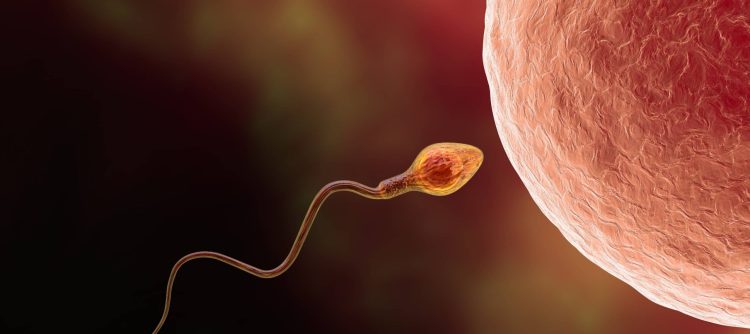Infertility And Obesity

How is obesity related to fertility?
It is well known that obesity is associated with a general decline in overall fertility, with a significant relationship existing between high body fat and problems with reproduction. It is therefore becoming increasingly that important to understand this association because of the steadily rising rates of obesity nowadays.
How is obesity related to fertility?
Little research has been carried out on male fertility compared to the vast amount of research done on female fertility. However, some studies indicate that the degree of male obesity has a direct effect on estrogen levels, with increased fat deposits corresponding to higher estrogen and lower testosterone levels. These elevated estrogen levels in men tend to suppress fertility because they prevent the synthesis of androgens (hormones required for the development and maintenance of normal male reproductive function). In addition, metabolic syndrome, a condition that can arise from obesity, is also associated with symptoms of erectile dysfunction, hence compounding the adverse effects obesity has on fertility.
Female obesity and fertility
Fertility issues arising from obesity in women include:
There is a strong association between Type II diabetes and fertility, alterations in the length of the menstrual cycle, and the age of onset of menopause. This association may be explained by linking this disease to PCOS , the most common hormonal disorder among women of reproductive age, and a leading cause of infertility. Insulin resistance, obesity and diabetes mellitus strongly correlate with PCOS.
- Irregular menstrual cycles
- Problems with ovulation
- Increased androgen levels
- Polycystic ovarian syndrome (PCOS)
- Increased risk of miscarriage
- Decreased success rates with assisted reproductive technologies (ART)
hese associations between obesity and reduced fertility are particularly significant when excess fat is deposited around the abdominal area. Changes in circulating sex hormones are thought to be largely responsible for decreasing fertility. The overall effect of these changes is usually an increased production of androgens, leading to a condition called hyperandrogenism (excessive androgen production). This condition is evident in obese women who experience amenorrhoea.
They also found that these prevalence rates are similar in two populations of PCOS women with different weights, suggesting that PCOS may be a more important risk factor than ethnicity or race for glucose intolerance in young women. By contrast, a study by Amini et al. showed that PCOS is highly prevalent in Type 2 diabetic patients. So this shows that their is a link between diabetes and infertility.
Obesity is also often associated with increased insulin production and insulin resistance. These two factors are believed to contribute to hyperandrogenism in obesity because insulin is important for the regulation of sex hormone production. This can be seen in obese women with PCOS, where excess weight gain leads to excessive insulin production, promoting increased androgen secretion and abnormal follicles in the ovary. This results in an overall disruption in ovarian and menstrual activity, causing fertility problems.
Obese women who turn to assisted reproductive technologies (ART) also face additional obstacles compared to non-obese patients. Obesity is linked to decreased success of fertility treatments such as in vitro fertilisation (IVF).
Leptin - a link between obesity and fertility
Leptin is a protein produced by fatty tissue that plays an important role in controlling food intake and energy expenditure, as well as the regulation of reproductive function. The former two functions are important in the development of obesity, since body weight increases when food intake exceeds energy expenditure (i.e. when we consume more energy from food than we work off from physical activity). It is the role of leptin to detect energy store levels in the body and to relay this information to the central nervous system (CNS). When fat stores and hence leptin levels are high, the brain acts to decrease food intake and to increase energy expenditure. Studies have found that laboratory mice without circulating leptin develop both obesity and infertility, and that administration of leptin later on leads to the restoration of normal body weight and fertility. Leptin therefore plays an important role in the relationship between obesity and fertility.
Psychological factors
The decrease in fertility associated with obesity can come about as a result of interactions between physiological and psychological factors. Psychological factors include a decreased sex drive and increased sexual dysfunction, which can lead to obese individuals not having sexual intercourse as frequently as non-obese people, even if they are living with a sexual partner within a relationship. Obesity can therefore affect a person’s sexuality, which impacts on their overall fertility.
How does treating obesity affect fertility?
Weight loss can dramatically improve fertility in obese people. It is often the first step in fertility treatment when an obese patient seeks help from assisted reproductive technology (ART). Even a loss of 5-10% can significantly improve ovulation and pregnancy rates.
Weight loss improves fertility in obese people both physiologically and psychologically. Psychological state and mood has been found to increase significantly after weight loss, and a reduction in insulin and androgen levels has been found in women. This may lead to an 80% improvement in menstrual function and pregnancy rates of 30%.
Nishant Fertility Centre provides special approach to treat your obesity & with infertility problems.
Expertise advise of Dr. Nishant Dixit for infertility & yoga, Exercise, nutrition advice by well qualified, well known and well trained nutritionist Dr. Medhavi Gautam to enhance your Fertility we will assure safe & holistic approach to treat obesity & infertility problems.
